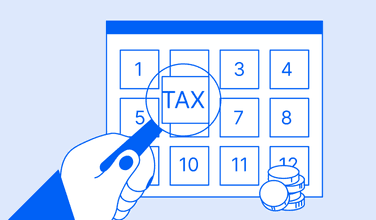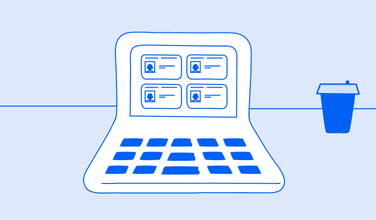- Osome Blog UK
- Defining the Concept and Nature of the Gig Economy
Defining the Concept and Nature of the Gig Economy
- Modified: 25 February 2025
- 5 min read
- Running a Business


Jon Mills
Author
Jon relishes writing content that both educates and entertains the reader. With a background in copy and content writing for brands, he's told unique stories in creative ways, adding value to products in the luxury sector. Now, he works with our accounting experts and small business owners to bring their advice and journeys to life for Osome's readers. He aims to inspire ambitious entrepreneurs to set their sights high, and build highly-respected, flourishing businesses.
The gig economy, marked by short-term, flexible job roles, is redefining the UK’s traditional employment landscape. Offering unparalleled flexibility, it's a great option for many seeking autonomy. However, with challenges like job security and benefit concerns, understanding its impact is crucial.
The gig economy meaning essentially refers to a labour market characterised by short-term, temporary, or freelance work arrangements rather than traditional full-time employment. For those looking to take advantage of this flexible work environment, there are various side hustle ideas available to explore, offering a chance to earn additional income while potentially setting their own schedule.
In this article, we will delve into the key characteristics of the gig economy definition and its nature, explore its pros and cons, analyse its impact on individuals and society, discuss policy considerations and regulation challenges, and provide strategies for navigating this emerging job market.
Key Characteristics of the Gig Economy
The gig economy is defined by several key characteristics that set it apart from traditional employment models.
But what exactly makes the gig economy so unique and appealing to many workers? Let's delve deeper into these characteristics and explore the fascinating world of gig work.
Flexible and independent work arrangements
One of the defining features when asking 'what is a gig economy?' is the unparalleled flexibility it offers to workers. Gig workers have the freedom to choose when, where, and how much they want to work. This freedom makes it ideal for individuals considering starting a side hustle, allowing them to fit their jobs around other commitments or pursue multiple gigs simultaneously. The gig economy is particularly appealing for those who value autonomy and the ability to balance multiple roles, such as parents, students, or those looking for non-traditional work arrangements.
This flexibility is a game-changer for individuals who value autonomy and work-life balance. Whether it's a parent who wants to spend more time with their children, a student juggling studies and work, or someone simply seeking a non-traditional work arrangement, the gig economy provides a solution.
Imagine being able to set your own schedule, deciding to work in the morning or evening, and taking breaks whenever you need them. The gig economy empowers workers to take control of their time and create a work routine that suits their lifestyle.
Short-term, project-based tasks
Gig workers typically engage in short-term, project-based tasks that can range from a few hours to a few weeks or months. This allows for greater variety and exposure to different industries and job roles, offering an enriching experience for those seeking diverse work opportunities.
For example, a graphic designer may work on a logo design project for a week, then move on to creating marketing materials for a different client the following month. This constant rotation of projects keeps things fresh and exciting, preventing monotony from setting in.
Moreover, gig workers often have the freedom to choose the projects they want to take on. They can select tasks that align with their skills, interests, and goals, creating a sense of fulfillment and satisfaction in their work.
Using digital platforms to find jobs
In the gig economy, digital platforms play a crucial role in connecting gig workers with potential job opportunities. These platforms provide a convenient and efficient way for workers to find gigs and for employers to access a pool of talent.
Thanks to the power of technology, gig workers can now easily browse through a wide range of gigs available in their area or field of expertise. With just a few clicks, they can apply for gigs, showcase their skills and experience, and connect with potential clients or employers.
Popular gig platforms in the UK, such as Uber, Deliveroo, and Upwork, have revolutionised the way gig workers find work and how businesses tap into a flexible workforce. These platforms not only provide a streamlined job matching process but also offer additional benefits like user reviews, secure payment systems, and dispute resolution mechanisms.
By harnessing the potential of digital platforms, the gig economy has created a dynamic marketplace where workers and employers can easily connect, collaborate, and thrive.
As the gig economy continues to grow and evolve, it presents both opportunities and challenges for workers, businesses, and policymakers. The key characteristics discussed above highlight the allure and impact of gig work, but there is much more to explore in this ever-changing landscape.
Pros and Cons of the Gig Economy
Like any employment model, the gig economy advantages and disadvantages are varied and need to be considered in depth. Let's explore them in more detail.
Benefits of flexible work and income diversification
Flexible work arrangements allow gig workers to have better control over their schedules and enjoy a greater work-life balance. Additionally, gig work can provide a source of income diversification, enabling individuals to pursue their passions or side hustles while earning a living.
Challenges related to job security and benefits
While the gig economy offers unparalleled flexibility, it also comes with its set of challenges. Gig workers, especially those in the ecommerce sector, may struggle with managing their finances. They might require ecommerce accounting services to ensure accurate bookkeeping. The nature of gig work often classifies workers as self-employed or independent contractors, meaning they may not be entitled to traditional employment benefits such as sick pay, holiday pay, or pensions. This lack of traditional job benefits can leave gig workers vulnerable, especially during times of economic uncertainty.
Impact on work-life balance and social safety nets
The gig economy can have both positive and negative effects on work-life balance. While flexibility allows workers to accommodate personal commitments, it can also blur the line between work and personal life, leading to potential burnout. Furthermore, the gig economy poses challenges to the existing social safety nets and welfare systems since gig workers may not have access to the same level of support as traditional employees.
Gig Economy and its Impact
The gig economy UK dynamics have a profound influence on traditional employment models and the broader economic landscape.
Influence on traditional employment models
The rise of the gig economy has driven a shift in the nature of work. Traditional nine-to-five, long-term employment is gradually being replaced by more flexible and project-based arrangements. This trend has significant implications for employers, employees, and the workforce as a whole.
Economic implications for individuals and society
For individuals, the gig economy offers increased earning potential and the opportunity to pursue a wider range of interests. However, it also brings income volatility and financial uncertainty. From a societal perspective, the gig economy can contribute to economic growth but may exacerbate inequality and create a stratification of workers with varying levels of job security and benefits.
Policy considerations and regulation challenges
The emergent nature of the gig economy has raised questions regarding worker classification, employment rights, and tax implications. Policymakers face the challenge of striking a balance between protecting workers and fostering innovation and entrepreneurship. Developing effective regulations that ensure fair treatment of gig workers while allowing for the growth of the gig economy presents an ongoing challenge.
Navigating the Gig Economy
As the gig economy continues to evolve, it is essential for gig workers to navigate this job market effectively.
Strategies for success as a gig worker
Building a strong personal brand, developing a diverse skill set, and cultivating a reliable network are crucial for succeeding in the gig economy. Embracing self-promotion through online platforms and continuously upskilling can enhance opportunities for securing gigs and standing out in a competitive landscape.
Addressing income volatility and financial planning
Managing income volatility is a significant challenge in the gig economy. Establishing a budget, saving for emergencies, and exploring financial planning tools can help gig workers stabilise their income and mitigate financial risks associated with occasional dips in demand.
Balancing gig work with personal and professional goals
Maintaining a healthy work-life balance is essential for gig workers to avoid burnout and maintain overall well-being. Setting clear boundaries, prioritising self-care, and regularly reassessing personal and professional goals can help strike a harmonious balance between gig work and other aspects of life.
Conclusion
The gig economy in the UK is a dynamic and evolving labour market that offers both opportunities and challenges for workers. Its key characteristics, pros and cons, impact on individuals and society, and navigation strategies provide valuable insights for those seeking to understand and thrive in this shifting employment landscape. As the gig economy continues to reshape the way we work, it is critical to foster an environment that ensures fair treatment and supports the success of gig workers while addressing the regulation challenges that arise along the way.






